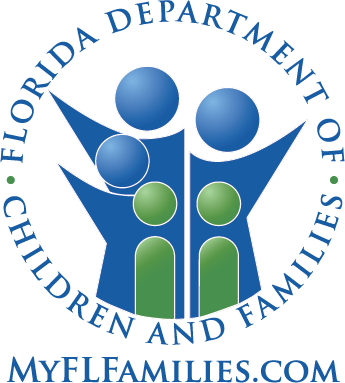What is Post-Traumatic Stress Disorder (PTSD)?
Post traumatic stress disorder PTSD is a mental health disorder that can develop after a person has been exposed to a traumatic event. This could include experiences like war, a car accident, natural disaster, or personal assault. People with PTSD often relive the traumatic event through flashbacks or nightmares, have difficulty sleeping, and feel detached or estranged from others.
What Are The 17 Symptoms / Common Symptoms Of PTSD?
The symptoms of PTSD can vary from person to person, but according to the Diagnostic and Statistical Manual of Mental Disorders (DSM-5), which is commonly used for diagnosing mental health conditions, there are four clusters of symptoms associated with PTSD.
intrusion symptoms
Recurrent, distressing memories of the traumatic event(s)
Flashbacks or dissociative reactions
Distressing dreams related to the event(s)
Intense distress from trauma triggers and cues
avoidance symptoms
Avoid thoughts, feelings, or conversations associated with the traumatic event(s)
Avoidance of activities, places, or people that remind the individual of the traumatic event(s)
Difficulty recalling important aspects of the event(s)
Diminished interest or participation in activities previously enjoyed
Negative Alterations in Cognition and Mood
Persistent negative emotional state (e.g., fear, guilt, anger, shame)
Negative beliefs or expectations about oneself, others, or the world
Distorted blame of self or others related to the traumatic event(s)
Diminished interest in activities or detachment from others
Persistent inability to experience positive emotions
Alterations in Arousal and Reactivity
Irritability or angry outbursts
Reckless or self-destructive behavior
Hypervigilance (being constantly on guard)
Exaggerated startle response
Problems with concentration
Sleep disturbances (e.g., difficulty falling asleep, staying asleep, or having nightmares)
It’s important to note that these symptoms must persist for more than one month and significantly interfere with a person’s daily functioning to meet the criteria for a diagnosis of PTSD.
What are the effective treatment options for Post-Traumatic Stress Disorder PTSD?
Psychotherapy
Medication
Certain antidepressants can be effective in treating PTSD.
Self-Management Strategies
This can include mindfulness techniques, regular physical activity, and staying connected with supportive friends and family.
Still Mind Florida
We offer a range of treatment options, including DBT, tailored to the unique needs of each individual.

post traumatic stress disorder Treatment
We understand the profound impact that Post-Traumatic Stress Disorder (PTSD) can have on an individual’s life. Our team of dedicated and experienced professionals is committed to providing comprehensive, personalized treatment options to help manage PTSD symptoms and improve quality of life.
Dialectical Behavior Therapy (DBT) is a type of cognitive-behavioral therapy that was originally developed to treat individuals with borderline personality disorder. However, it has since been adapted for the treatment of other mental health disorders, including PTSD.
DBT for PTSD focuses on helping individuals develop skills to manage their distress, regulate their emotions, and improve their relationships. It combines standard cognitive-behavioral techniques for emotion regulation and reality-testing with concepts of mindful awareness, distress tolerance, and acceptance.
Here are some key components of DBT for PTSD:
Mindfulness
To be present and fully aware in the moment, which can help individuals with PTSD break away from distressing thoughts and feelings associated with their trauma.
Distress Tolerance
Ability to tolerate and accept distress in a healthy way, rather than trying to escape from it. This can be particularly helpful for individuals with PTSD who often experience intense distress.
Emotion Regulation
Learning to manage and change intense emotions that are causing problems in a person’s life. This can help to manage the intense fear and anxiety associated with their trauma.
Interpersonal Effectiveness
This involves learning to communicate effectively and assertively, which can help individuals with PTSD improve their relationships and reduce conflict.
DBT for PTSD typically involves both individual therapy sessions and group skills training classes.
In individual therapy, the therapist and patient work on strategies for managing symptoms and improving quality of life. In group skills training classes, patients learn and practice skills together.
It’s important to note that while DBT can be an effective treatment for PTSD, it’s not suitable for everyone.
What are the long-term effects of post traumatic stress disorder on mental health?
If left untreated, PTSD can have serious long-term effects on a person’s mental health. This can include chronic anxiety, depression, sleep disorders, and substance abuse. It can also lead to difficulties in relationships and decreased quality of life.
Long-term effects of PTSD can vary depending on the individual and the severity of their traumatic experiences.
Emotional dysregulation
People with PTSD often experience difficulty regulating their emotions. They may have intense and unpredictable emotional reactions, such as anger, irritability, sadness, or anxiety. This emotional dysregulation can impact their relationships, work performance, and overall quality of life.
Intrusive memories and flashbacks
Intrusive memories are a hallmark symptom of PTSD. Individuals may experience vivid, distressing recollections of the traumatic event, which can be triggered by various cues in their environment. Flashbacks, on the other hand, involve feeling as if they are reliving the traumatic event, causing intense fear and panic.
Avoidance behaviors
Individuals with PTSD may engage in avoidance behaviors to prevent triggering memories or reminders of the traumatic event. This can include avoiding certain people, places, activities, or even conversations. While avoidance may provide temporary relief, it can lead to social isolation and limited engagement in important aspects of life.
Hyperarousal and hypervigilance
PTSD often leads to a state of hyperarousal, where individuals feel constantly on edge, easily startled, and hypervigilant for potential threats. This heightened state of alertness can result in sleep disturbances, difficulties concentrating, and an overall feeling of being constantly on guard.
Negative self-perception and distorted beliefs
Traumatic experiences can profoundly impact how individuals perceive themselves and the world around them. Many people with PTSD develop negative self-perceptions, feelings of guilt or shame, and a sense of pervasive mistrust towards others. They may also develop distorted beliefs about safety, the predictability of events, or the likelihood of future traumas.
Substance abuse and self-destructive behaviors
Some individuals with PTSD may turn to substances like drugs or alcohol as a way to cope with their symptoms. Substance abuse can exacerbate the negative effects of PTSD and increase the risk of developing co-occurring mental health disorders. Additionally, self-destructive behaviors, such as self-harm or reckless actions, can be a manifestation of the distress and emotional turmoil associated with PTSD.
Physical health issues
PTSD has been linked to various physical health problems, including cardiovascular issues, gastrointestinal disorders, chronic pain, and autoimmune disorders. The chronic stress and dysregulation of the body’s stress response system associated with PTSD can have long-term detrimental effects on physical well-being.
Relationship difficulties
The emotional and behavioral symptoms of PTSD can strain relationships with family, friends, and romantic partners. People with PTSD may struggle with emotional intimacy, have difficulty trusting others, experience heightened conflict, or exhibit emotionally distant behaviors. These challenges can lead to a breakdown in relationships and social support networks.
Cognitive impairments
PTSD can also impact cognitive functioning. Individuals may experience difficulties with memory, attention, concentration, and problem-solving. These cognitive impairments can affect academic or occupational performance and contribute to feelings of frustration and reduced self-esteem.
Increased risk of other mental health disorders
PTSD is often accompanied by other mental health conditions, such as depression, anxiety disorders, or substance use disorders. The co-occurrence of these disorders can further complicate treatment and exacerbate the overall impact on an individual’s well-being.
How can I support a loved one who is struggling with PTSD?
Supporting a loved one with PTSD can be challenging, but there are several ways you can help:
Educate yourself about PTSD
Understanding what your loved one is going through can help you provide the support they need.
Be patient
Recovery from PTSD takes time and everyone’s journey is unique.
Encourage treatment
Encourage your loved one to seek professional help if they haven’t already.
At Still Mind Florida, we understand the profound impact that Post-Traumatic Stress Disorder (PTSD) can have on an individual’s life. Our team of dedicated and experienced professionals is committed to providing comprehensive, personalized treatment options to help manage PTSD symptoms and improve quality of life. We believe in the power of understanding, empathy, and the right therapeutic approach to help individuals navigate their unique journey towards healing. If you or a loved one are struggling with PTSD, don’t hesitate to reach out to us. Let’s walk this journey towards mental wellness together.

